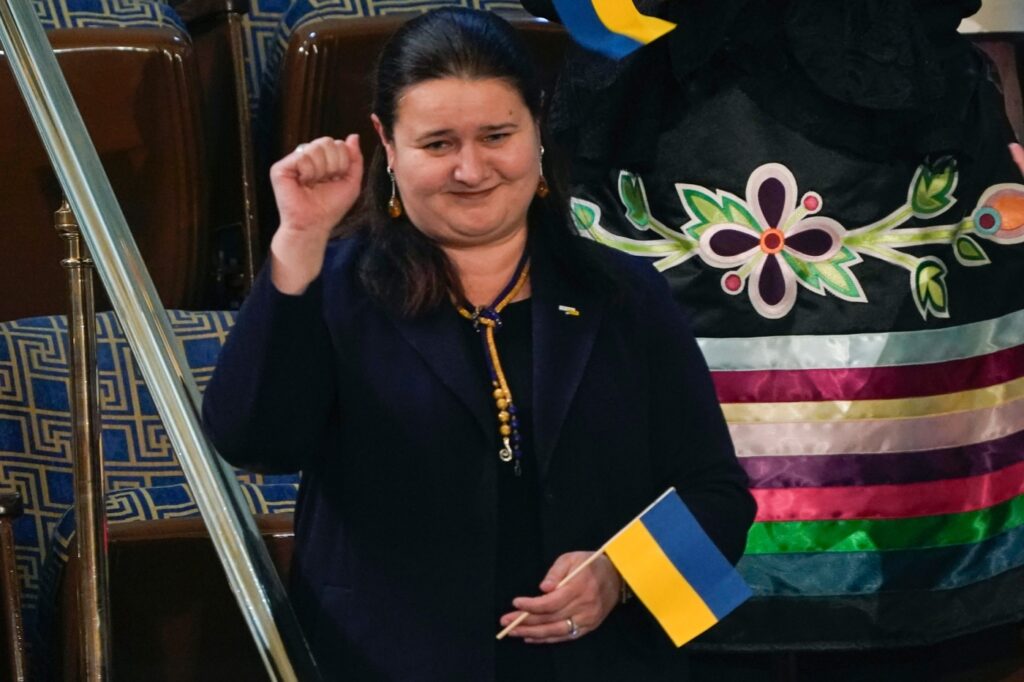
Before its invasion of Ukraine, Vladimir Putin’s government no doubt figured that its much smaller western neighbor would quickly collapse amid the Russian putsch, the “decadent” Western world would offer a divided response, and economic sanctions would be limited and ineffective given Russia’s integration in the world economy.
It’s hard to understand whether the former KGB chief is trying to restore the glory of Russia’s past empire or to neutralize a former satellite that’s increasingly allied with European democracies. Whatever his delusions, an isolated Putin has miscalculated.
Ukrainian fighters have slowed the invasion, which has shown the Russian military to be less fearsome than imagined. Instead of bringing Ukraine back into Russia’s orbit, the attack has solidified its informal alliances with the West. Instead of fracturing NATO and Western Europe, Russian brutality has brought those forces together.
Fortunately, NATO also is united in avoiding a direct military confrontation with nuclear-armed Russia. The alliance on Friday wisely rejected Ukrainian President Vladimir Zelensky’s call for a no-fly zone. Western countries are providing military aid, but NATO must “prevent this war from escalating beyond Ukraine,” its secretary-general explained.
Instead of war, Russia is facing economic isolation and ostracism as democratic governments – and private companies and organizations – impose punishing sanctions. These are not like past half-hearted sanctions. The banking community has limited Russia’s involvement in its system, companies are pulling investments and European nations are shuttering pipelines. Most nations have banned Soviet planes from their airspace.
The West is even freezing the assets and seizing yachts owned by Russian oligarchs. Some of the proposals – e.g., banning Russian literature at universities and clearing Russian vodka from liquor store shelves – are symbolic and even silly. But the overall effect is overwhelming as the ruble becomes nearly worthless and Russian interest rates hit 20 percent.
If Putin were intent on rebuilding the Soviet empire, he’s doing so only by recreating images of Russians waiting in line for basic banking services and food. Those images raise a difficult question. If the war and occupation drag on, how should the West treat Russia? We should develop a realistic strategy and start making meaningful distinctions.
Western nations can begin with the easy calls. Sanctions targeting oligarchs or the Russian government are justified given that the Russian government and its financiers are the architects of the war. Furthermore, private companies are free to do as they choose – and we support oil companies such as Shell and financial firms that exited the Russian market.
Related Articles
Crime, justice and district attorneys
When public sector unions control California, you get this
Learn the lessons of Los Angeles’ HHH
The war Putin can’t afford to lose
By coddling right-wing crazies, GOP imperils its future
We like how U.S. technology firms have provided active assistance to the Ukrainians. After the Russian government shuttered Ukrainians’ internet service, for instance, Elon Musk provided them with service via satellite. However, the choices get murkier from there.
“The focus should be targeting state institutions, security forces and governing elites,” argued the Cato Institute’s Doug Bandow. “Sanctions with a broader impact might also be warranted to weaken Russian state power but needlessly hurting the Russian people should be avoided.” He cautioned against the “morally dubious” goal of trying to punish Russians into revolting.
Those are good general guidelines. Although the United States and the West must remain limited in the assistance they can provide to Ukraine, they should continue to show their resolve in the face of Russia’s naked aggression.
